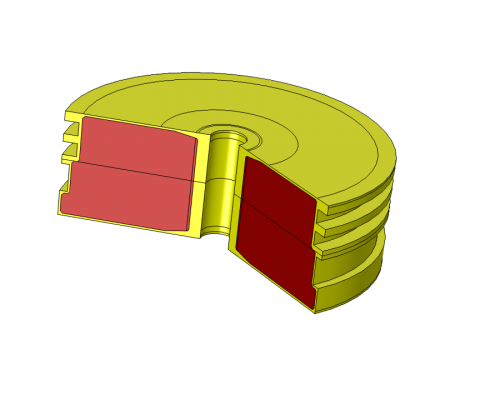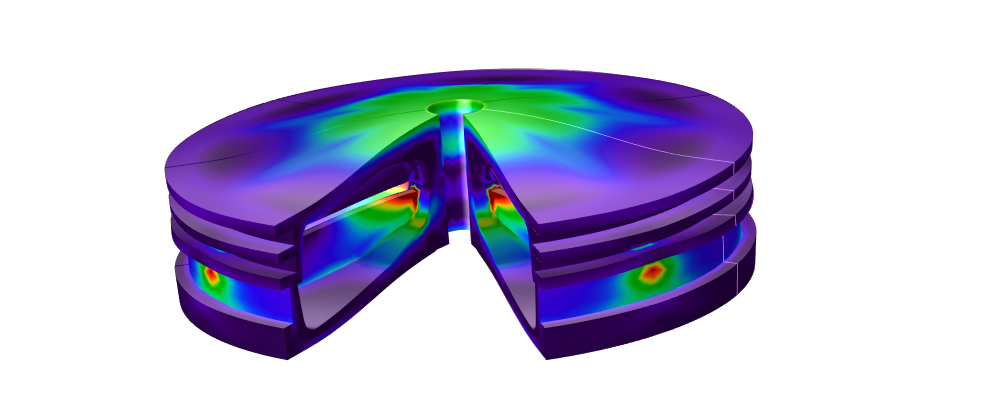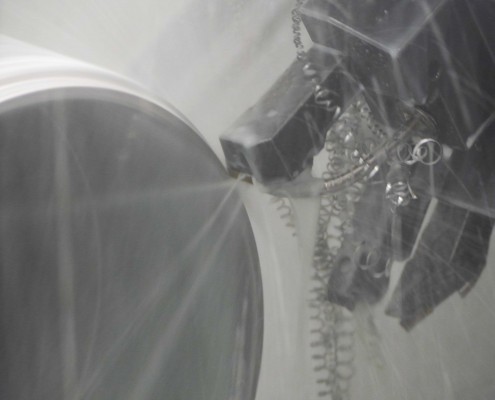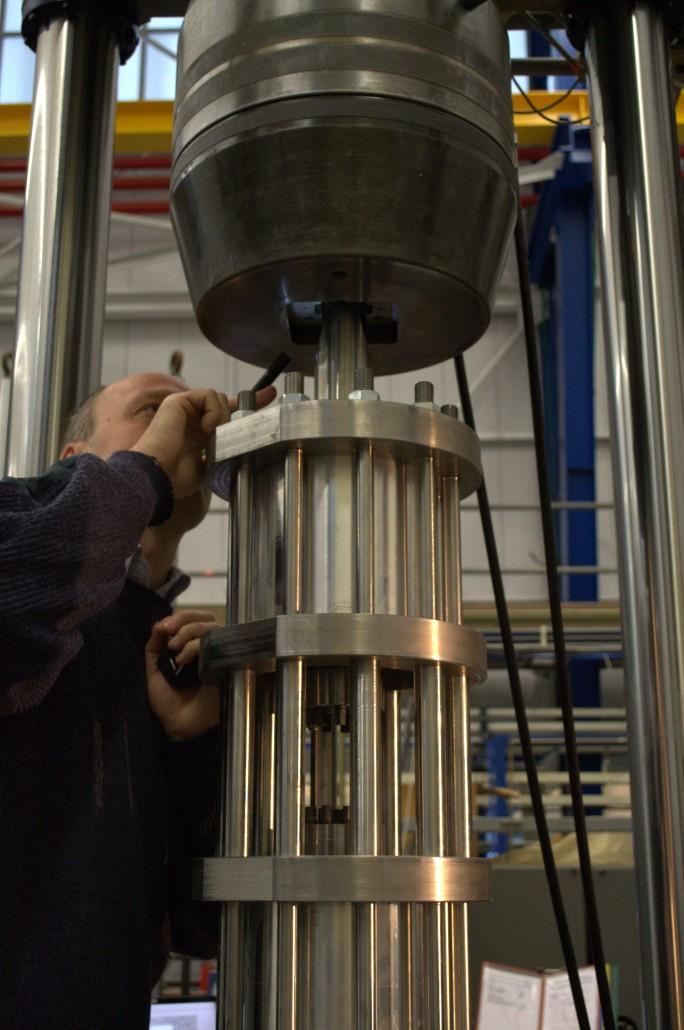
Materials
With a more than tenfold decrease in density compared to steel, the Panacea polymer core enables a dramatic change in the structural concept. Not only should this core have outstanding high temperature fatigue strength, but it should also allow high testing frequencies. And have exceptionally stable processing characteristics at a good price.
Fatigue strength
The Panacea piston concept allows a dramatic stress reduction. One challenge then remains to be solved. How can one obtain design data for safe allowable stress levels? And how are these integrated and materialised when actually making a hybrid assembly involving different materials with different expansion coefficients?
The answer lies in a thorough understanding of what factors determine the fatigue strength of polymer compounds and adhesive interfaces. Panacea addresses these issues at the core during materials selection and compounding, obtaining a vast and unique data-set supporting design and securing structural integrity by dedicated testing and an empirically based design method.


Manufacturing
In order to achieve a cost effective and reliable low weight solution, an optimised manufacturing method is vital in two respects.
First, the manufacturing challenge to achieve a metal shaft and sleeve of minimal weight is extremely important. Panacea makes use of a unique assembly sequence to promote a cost effective minimum weight structure of any diameter with a short leadtime.
Second, in-house compounding of especially selected high quality components secure the flawless performance of these materials, but only after a well-controlled manufacturing process has been applied in the first place. Both compounding, curing and bonding operations are closely monitored and controlled. A special non destructive test method has been developed allowing the assessment of the product condition and fitness for purpose.
Testing
Experimental methods are key to the Panacea technology on two levels.
The materials testing technology had to be developed, allowing for a very large number of load cycles to be applied in a short time, at representative stress levels, at moderate overall cost, for a sufficiently large number of test specimens. Panacea has commissioned several dedicated test machines, developed and built to do exactly that. Achieving a breakthrough in this area allowed Panacea to offer cost effective solutions because prohibitive testing cost concerns were thereby eliminated. Thus, multiple material compounds are now readily developed, each providing an optimised solution for a category of applications (e.g. temperature, chemical environment or size). Among the environmental effects tested are pressurisation (followed by depressurisation) and the effect of several kinds of oils.
 Testing technology plays an important role in the verification of the design by performing either scaled or full scale experiments on the actual piston configuration. This involves all the essential complexities and features, such as the presence of pre-stress, integration with the piston rod, thermal environment and last but not least the application of the final and representative manufacturing process.
Testing technology plays an important role in the verification of the design by performing either scaled or full scale experiments on the actual piston configuration. This involves all the essential complexities and features, such as the presence of pre-stress, integration with the piston rod, thermal environment and last but not least the application of the final and representative manufacturing process.


